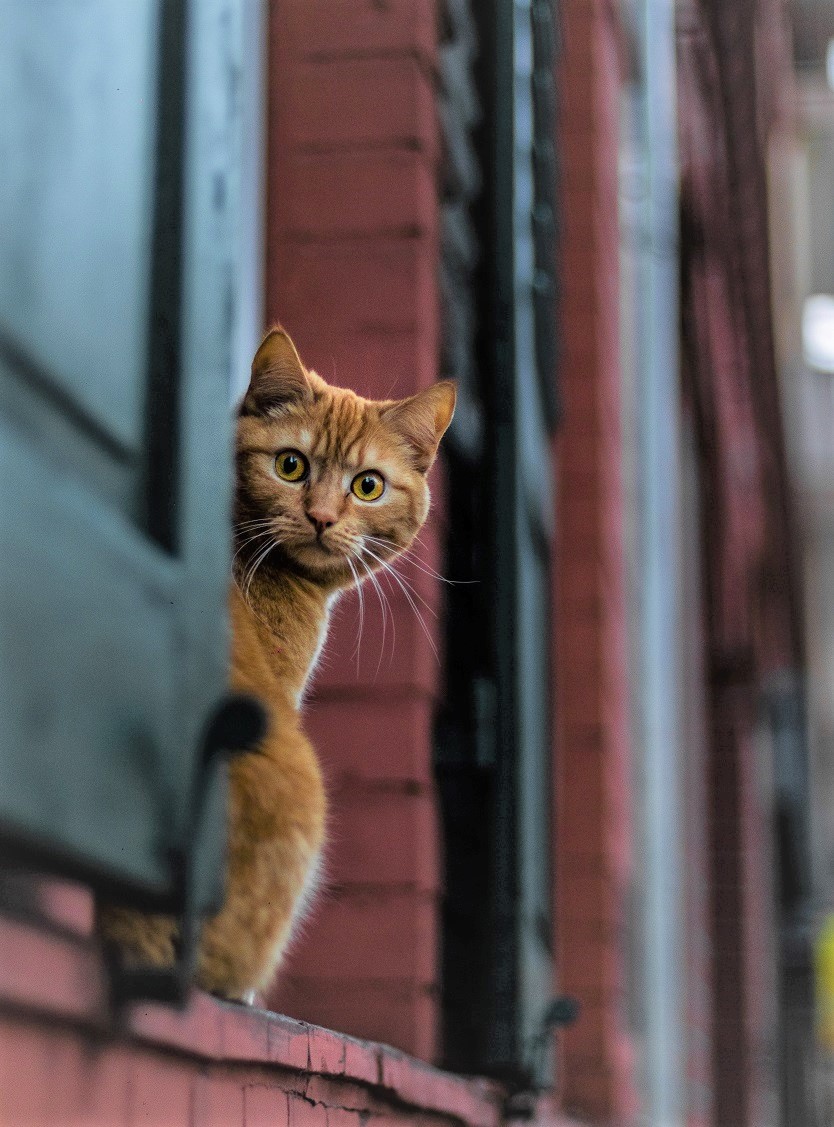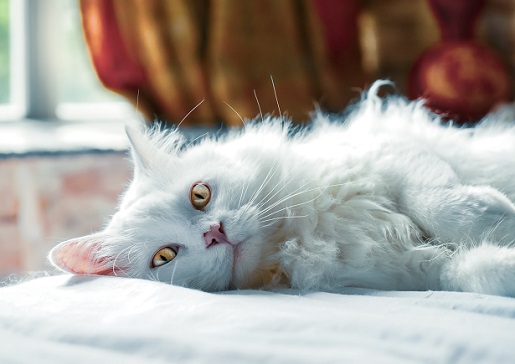Lockdown – good for dogs but not so cool for cats
 For many dogs, Covid-19 lockdowns are an endless, joyous holiday packed full of companionship, cuddles, games, exercise and treats. They get to help the kids with their schoolwork, and all of us with our ‘jobs’ about the place or just spend time smooching on the couch. But for many cats, lockdowns just aren’t quite so cool.
For many dogs, Covid-19 lockdowns are an endless, joyous holiday packed full of companionship, cuddles, games, exercise and treats. They get to help the kids with their schoolwork, and all of us with our ‘jobs’ about the place or just spend time smooching on the couch. But for many cats, lockdowns just aren’t quite so cool.
Cats are independent creatures, and while they need our care and attention, they also value their own space. Many cats are used to their care staff being out at work, their children at school, and they like it that way, thank you very much.
Lockdown stress on cats
With lockdowns, there are probably more people in these cats’ houses for longer periods of time than they are used to. Their precious routines get all messed up and some of our feline friends can get their noses a bit out of joint over it.
This can be compounded by the fact that even without realising it, we depend more on our pets during these stressful times than we possibly ever have before and, well, some of them might not be too happy about it.
Tips for lockdowns and cats
At Auckland Kennel and Cattery we’re cat lovers and cats can be just as fickle as people when it comes to their levels of sociability. In these times of stress and anxiety, it’s important to be mindful of your cat’s daily routine and where you fit into it, so we’ve put together some helpful tips on how to reduce lockdown stress on cats.
Helping your cat get enough quiet time can be challenging, especially if you have young children. Our being home affects a range of different aspects of their lives:
- Changes to their normal routine
- Increased interactions with people
- Having to share their territory more
- Food, water and litter trays may now be in areas that have high traffic.
How cats may show signs of stress
- Increased vocalisation
- Urinating outside of the litter tray
- Constipation or diarrhoea
- Sleeping more
- Hiding
- Excessive grooming
- Eating less
If you are concerned that your cat is showing any of these signs of stress, you should visit your vet to rule out other potential health issues.
Here’s what we can do to help our cats get through
Create a quiet safe place for your cat to retreat to
A full house can be very noisy and active. This can be very stressful for a cat that is used to having few people or no one in the house during the day. It may be that their normal rest area is no longer available, so give your cats space by providing safe zones for them to retreat to around your home, a safe haven to lounge or sleep. These can be as simple as a cardboard box turned on its side with some familiar bedding inside. Ideally, they’d be placed in areas of your home that are warm and offer some peace, like a spare room or study, and away from strong odours like air fresheners or litter trays. Often cats like to sit somewhere high up where they can hide away and observe their surroundings.
It is important that your cat is not disturbed during their time in this area, so allow them to do as they please and discourage family members from disturbing them.

If you’ve decided to go a bit crazy over lockdown and clean the house from top to bottom, or completely redecorate, it is important that at least some of your cat’s furniture stay the same during this time of high stress. If they have an absolutely favourite chair, I would suggest you keep it, at least for a while.
Food, food glorious food
Try to keep their feeding regime as normal as possible. Cats thrive on routine and having mealtimes change can be a key to lockdown stress on cats.
If your cat has access to on-demand food, you may want to consider offering them multiple, separate food and water bowls. It may be that their bowls are now in areas that are constantly busy, so your cat could be more reluctant to use them.
This is even more crucial in multi-cat households. Each cat should have a space to call their own, so you should provide sleeping and resting spaces, multiple litter boxes (at least one per cat, plus an extra litter box) and individual food and water bowls in separate spots. This will help reduce competition and keep these areas peaceful.
Giving your cat personal space
Obviously, some cats may love all the extra attention, our does, but it is recommended to have frequent, short bursts of interactions with your cat and to respect their personal space.
Let them decide whether they want to enter a social situation; don’t force them to interact with you or other family members, particularly young kids. Telling family not to give the cat attention when it enters a room is good way to let them socialise on their own accord.
Never corner them or give them too much eye contact as this can seem threatening, even if you don’t mean it to. Sitting quietly in a room with your cat while you read is a nice way to hang out.
Let your cat come to you for attention and always allow them to walk away when they choose to and be sure to read your cat’s body language. Purring, head bumping and a vertical tail gives you the green light, but a swishing tail, flat ears and swiping is a definite red light.
Allowing your cat to be in control of how and when they have space is key. After all, it’s always the moggy’s way or the highway, so why should a world-altering pandemic change that?
Giving your cat attention
Even though your cat enjoys time alone, it’s still important to give them attention. Playing with your cat is good, and games that involve chasing allow them to fulfil their natural instincts. Try throwing rolled up balls of newspaper or bouncing ping pong balls to keep them amused, but you should keep each game session short.
If in doubt, talk to the cat experts
Keeping an eye on our cats during these ‘unprecedented times’ means we can make sure all the changes aren’t having a negative effect on their well-being. If you are concerned that your cat about lockdown stress on cats in your life, you have any worries about your cat or need any further advice, speak to your vet.
